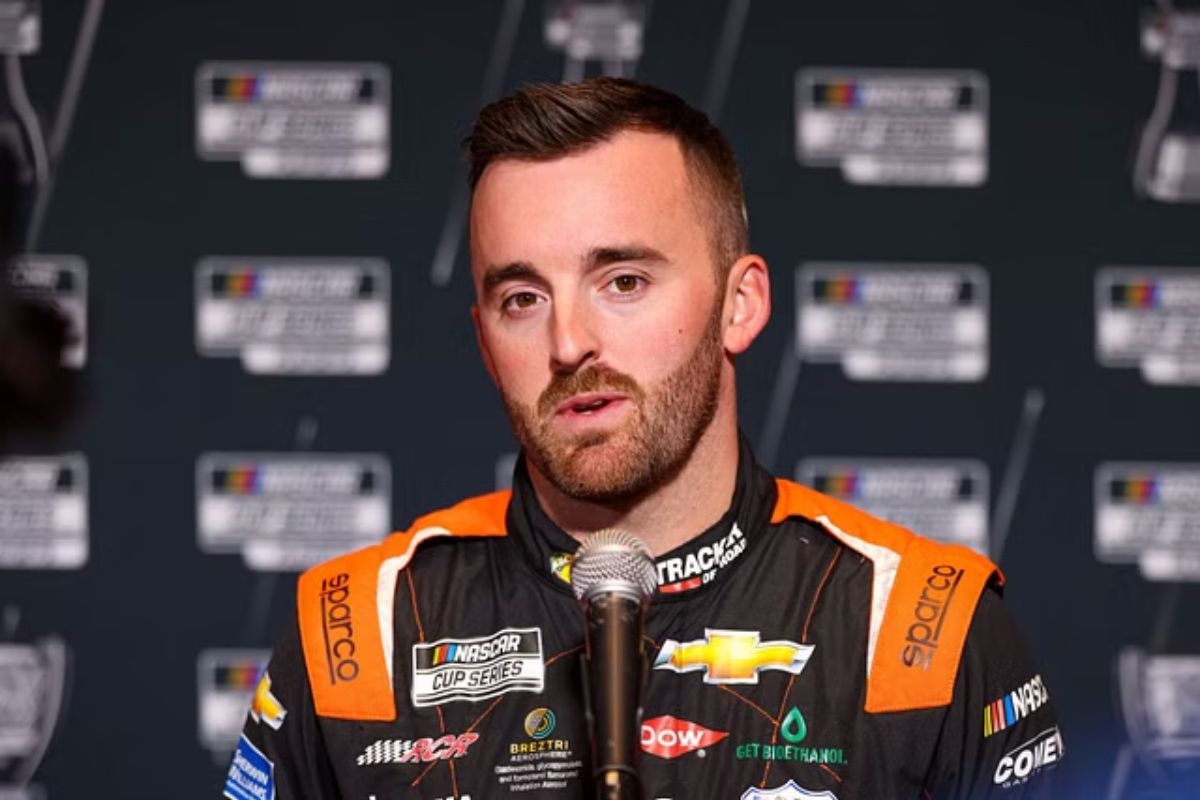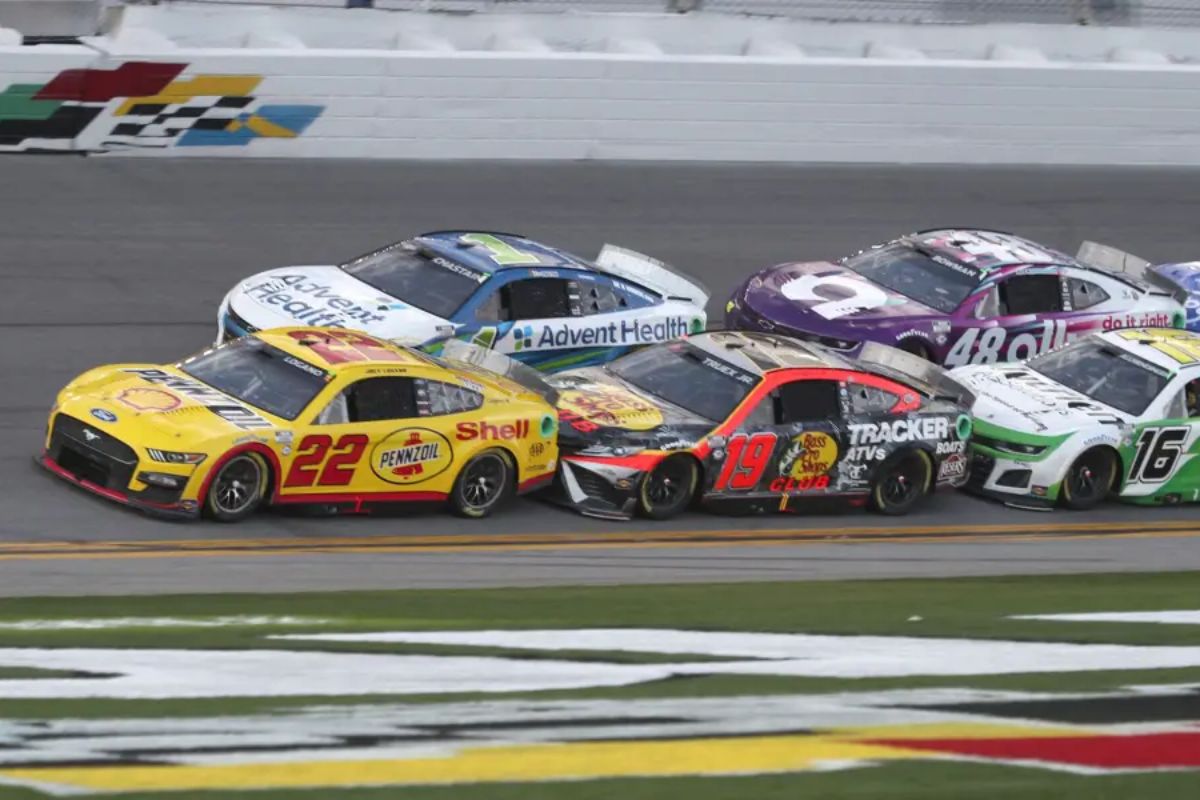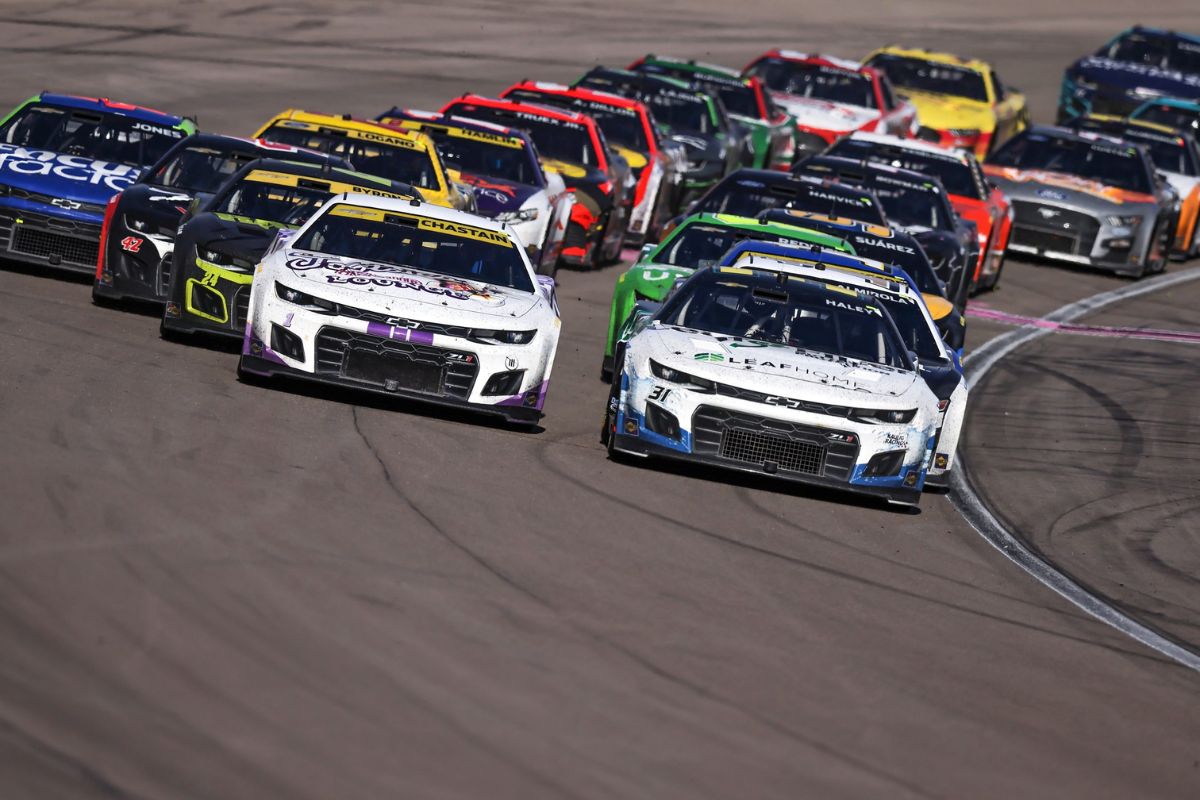Richard Childress Faces Backlash: Richard Childress is currently maneuvering a troubling landscape following NASCAR’s decisive rejection of Austin Dillon’s penalty appeal, a move that has sparked widespread criticism of Richard Childress Racing‘s (RCR) approach to accountabiliy. Fans and commentators similarly are questioning RCR’s insistence on contesting the ruling, interpreting it as a failure to uphold the integrity of the sport. This backlash not only threatens RCR’s standing among supporters but also raises broader questions about the role of accountability in NASCAR. As the situation unfolds, the implications for both Childress and the racing community merit closer examination.
Key Highlights
- Richard Childress Racing (RCR) faced significant backlash from fans after appealing NASCAR’s penalty against Austin Dillon, perceived as defiance against the sport’s integrity.
- Childress criticized NASCAR’s penalty, leading to increased questioning and negativity towards RCR from a fanbase demanding accountability and transparency.
- Fan sentiment shifted against RCR, with many expressing disappointment over their insistence on appealing the upheld penalties.
- Social media backlash intensified, reflecting a community rallying for NASCAR’s enforcement of rules and a call for RCR to accept the consequences.
- The situation threatens RCR’s legacy and future support, as fans prioritize accountability and fair competition in racing.
NASCAR Punishes Austin Dillon
In a decisive move that emphasizes NASCAR’s commitment to maintaining competitive integrity, Austin Dillon of Richard Childress Racing faced a considerable penalty following his controversial actions at Richmond Raceway. The sanctioning body docked Dillon 25 points in both the drivers’ and owners’ standings, a notable blow that impacts his immediate performance metrics and has broader implications for the championship landscape.
Despite securing a victory in Virginia, the consequences of his actions resulted in the loss of his playoff eligibility, a decision that highlights NASCAR’s zero-tolerance policy towards behavior that undermines the sport’s integrity.
The penalty has sparked a robust discussion within the racing community regarding the balance between aggressive driving and accountability. Dillon’s team, led by Richard Childress, promptly appealed the ruling, signaling their intent to contest the severity of the punishment.
However, the appeal board’s final verdict reaffirmed the original decision, reinforcing the notion that NASCAR is vigilant in its enforcement of rules designed to guarantee fair competition.
This incident serves as a critical case study in NASCAR’s evolving regulatory landscape, illustrating how swiftly penalties can be imposed in response to perceived misconduct.
For drivers and teams, the implications are profound; the incident signals that on-track decisions carry weighty consequences that extend beyond immediate results.
The Controversial Richmond Wreck
How did the controversial wreck at Richmond become a focal point of debate within the NASCAR community? The incident, involving Austin Dillon’s aggressive action that resulted in wrecking competitors Denny Hamlin and Joey Logano, ignited a firestorm of criticism regarding both Dillon’s actions and NASCAR’s subsequent response.
Many fans and analysts similarly deemed the incident as representative of a larger issue within the sport, questioning the ethics of racing tactics and the consistency of NASCAR’s enforcement of rules.
INSANITY ON THE FINAL LAP AT RICHMOND.
AUSTIN DILLON WINS AFTER CRASHING JOEY LOGANO AND DENNY HAMLIN. #NASCAR pic.twitter.com/mpQKcK236J
— NASCAR on NBC (@NASCARonNBC) August 12, 2024
- Fan Reactions: A polarized fanbase expressed their outrage online, with some defending Dillon and others vehemently condemning his actions.
- NASCAR’s Response: The governing body’s immediate handling of the situation was scrutinized, leading to discussions about the transparency of penalties.
- Richard Childress’s Role: The backlash directed at Richard Childress Racing (RCR) owner Richard Childress demonstrates the complexities of team dynamics and public perception.
- Implications for Future Races: The wreck has raised concerns about how similar incidents might be treated in upcoming races, influencing driver behavior and strategies.
The Richmond wreck not only emphasized the intense rivalry among top drivers but also highlighted the ongoing struggle within NASCAR to balance competitive aggression with safety and fairness.
As RCR’s appeal unfolds, the consequences of this incident will likely resonate throughout the season, shaping both team strategies and fan engagement.
Appeal Outcome: NASCAR Triumphs
The appeal outcome following the Richmond wreck highlights NASCAR’s commitment to enforcing its rules and maintaining integrity within the sport. The decision to uphold Austin Dillon’s penalty is a clear message that reckless behavior will not be tolerated, regardless of the controversial nature of his win.
Dillon lost his playoff spot despite having secured a win, due to a penalty related to Sections 4.4.B of the NASCAR Member Code of Conduct Penalty Options and Guidelines, 10.1.A General Procedure, and 12.3.2.1.B Eligibility. Additionally, his team spotter, Brandon Benesch, was handed a three-race suspension for breaching Sections 4.4.D and 10.1.A.
Dillon’s penalty, which stripped him of his playoff spot despite his victory, emphasizes the gravity of the infractions committed by both him and his spotter, Brandon Benesch. The appeals panel’s decision to maintain Dillon’s penalty while reducing Benesch’s suspension reflects a measured approach to justice within NASCAR’s competitive framework.
| Outcome | Details |
|---|---|
| Penalty Upheld | Dillon stripped of playoff spot |
| Spotter Suspension | Benesch’s suspension reduced from three races to one |
| Competitor Reaction | Logano and Hamlin express disappointment |
This outcome is crucial for NASCAR as it reinforces their dedication to a fair and competitive environment. By addressing the incidents at Richmond decisively, NASCAR not only preserves its reputation but also sets a precedent for future conduct. The ruling serves as a reminder to all participants that the integrity of the sport must be upheld, ensuring that every victory is earned on merit, not through unsportsmanlike conduct.
NASCAR’s Statement on Conduct
Amid the controversy surrounding Austin Dillon’s actions during the Richmond race, NASCAR’s statement on conduct highlights the organization’s commitment to maintaining high standards of behavior among its competitors. The appeals panel’s decision emphasizes the necessity for drivers to exemplify conduct that reflects the elite status of the sport.
“NASCAR represents elite motorsports and, as such, its drivers are expected to demonstrate exemplary conduct if its series’ championships are to be validated. In this case, the ‘line’ was crossed.”-(NASCAR)
This clear delineation of acceptable behavior serves to reinforce NASCAR’s integrity and reputation.
The statement also reflects a broader philosophy that governs NASCAR’s operational framework. Key points from the statement include:
Austin Dillon remains in a must-win situation to make the playoffs after RCR’s penalty is upheld. pic.twitter.com/WEN4D89QJG
— NASCAR on NBC (@NASCARonNBC) August 21, 2024
- Expectation of Professionalism: Drivers are held accountable for their actions, which must align with the sport’s values.
- Consequences for Misconduct: Crossing the established ‘line’ invites scrutiny and potential penalties, reinforcing the importance of self-regulation.
- Community Standards: The conduct of drivers not only reflects on themselves but also on the NASCAR community and its fanbase.
- Commitment to Fairness: NASCAR aims to guarantee that all participants are treated equitably, fostering a competitive yet respectful environment.
NASCAR’s proactive stance against inappropriate behavior is vital for maintaining its competitive integrity. The upholding of penalties related to Dillon’s actions serves as a reminder that misconduct will not be tolerated, thereby elevating the standards expected from all athletes in the series.
Fan Reactions and RCR’s Response
Fan sentiment has sharply turned against Richard Childress Racing (RCR) following the penalty appeal related to Austin Dillon‘s actions during the Richmond race. The NASCAR community‘s backlash was not unexpected, particularly given the precedent set by Hendrick Motorsports’ successful appeal last year.
However, the appeals panel’s decision to uphold Dillon’s penalty has ignited criticism from fans who view RCR’s response as inflexible and injurious to the sport’s integrity.
“You people are such pathetic sore loser cry babies . Maybe get an actual driver with talent instead of the nepotism silver spoon loser you keep employed and this wouldn’t happen.”
“Just take the loss and move on guys. EVERYBODY disagrees with you that it was a fair win.”
“Good! They got one right and it stays in place. I am surprised the spotter is getting a break though.”
-(fans)
Social media platforms have become a battleground for discontent, with numerous fans expressing their frustration at RCR’s insistence on appealing to the Final Appeal Officer. Comments have ranged from accusations of tarnishing the sport’s reputation to calls for RCR to accept their defeat gracefully.
One fan’s remark encapsulated the prevailing sentiment: “Just take the L.” This phrase has echoed throughout the fanbase, reflecting a widespread belief that RCR’s refusal to concede is an affront to NASCAR’s competitive standards.
While some supporters still cling to RCR’s legacy, the majority of the community appears to rally behind NASCAR’s decision, viewing it as a necessary affirmation of rules and regulations. Fans have described the upholding of the penalty as an “extremely rare NASCAR W,” signaling approval of the enforcement of accountability.
As RCR prepares to continue its fight, the question remains whether their approach will resonate with a fanbase that increasingly favors transparency and fairness over legacy and loyalty.
The outcome of this saga will likely define RCR’s standing in the NASCAR community moving forward.
News in Brief: Richard Childress Faces Backlash
The backlash faced by Richard Childress Racing following NASCAR’s rejection of Austin Dillon’s penalty appeal highlights the complexities of accountability within the sport. This incident serves as a critical reminder of the necessity for integrity and adherence to established regulations in racing. The erosion of support for RCR reflects a broader sentiment among fans advocating for transparency and responsible conduct. Ultimately, this situation may influence future interactions between teams and governing bodies, shaping the cultural landscape of NASCAR.
ALSO READ: Richard Childress Radio Blunder Post-Austin Dillon’s Win: Fans Go Berserk!




I have pulled for austin every since he started. I did not know who he was. He was just a young kid just started. My husband told me who he was. I didn’t care. He seemed like a good kid. Alot of people were down on him because of who he was. Not me. This deal When he wreak Hamlin and Lagano. To win. If it had been anybody else Nothing would have been said. Nothing. But because of them 2 guys and who they are. Yea Nascar made it a big deal.
And this has been done before with other drivers and Nascar has said nothing..so figure that out..